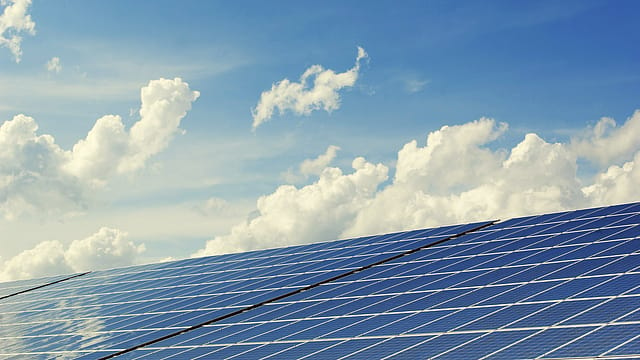Safeguard duty on solar cell imports to adversely impact domestic solar projects
ADVERTISEMENT

A government decision to impose a 25% safeguard duty on solar cells imported from China and Malaysia is expected to adversely impact the domestic solar developers by pushing up costs of solar projects by 15% to 20%, analysts said on Tuesday.
The government on Monday imposed a safeguard duty on solar cells imports, following an application by the Indian Solar Manufacturers’ Association in November on the grounds that the domestic industry had sustained heavy losses due to a flood of cheap solar cell imports.
The government plans to levy a 25% tax in the first year, which will be lowered to 20% in the first half of next year and further slashed to 15% in the second half of the year.
But the new duty structure is still unlikely to boost the domestic solar manufacturing industry which will continue to rely on imports despite the increase in price as domestic demand far outstrips local production.
India’s maximum annual solar-cell manufacturing capacity is about 3 gigawatts while average annual demand is 20 gigawatts, according to Ministry of New & Renewable Energy data.
“This (the increase in duty) would result in an increase in the capital cost for a solar power project by 15%, which in turn would result in an increase in tariff by about 30-35 paise per unit to maintain a similar level of returns for project developers,” rating agency ICRA said in a statement.
Chinese imports are also unlikely to slow down as their prices are expected to drop as China turns to the Indian market following its new policy to withdraw financial support to solar developers and halt new projects.
“The imposition of a safeguard duty for a short period of two years is unlikely to lead to any significant increase in the domestic solar module/cell manufacturing capacity in the near term,” ICRA said.